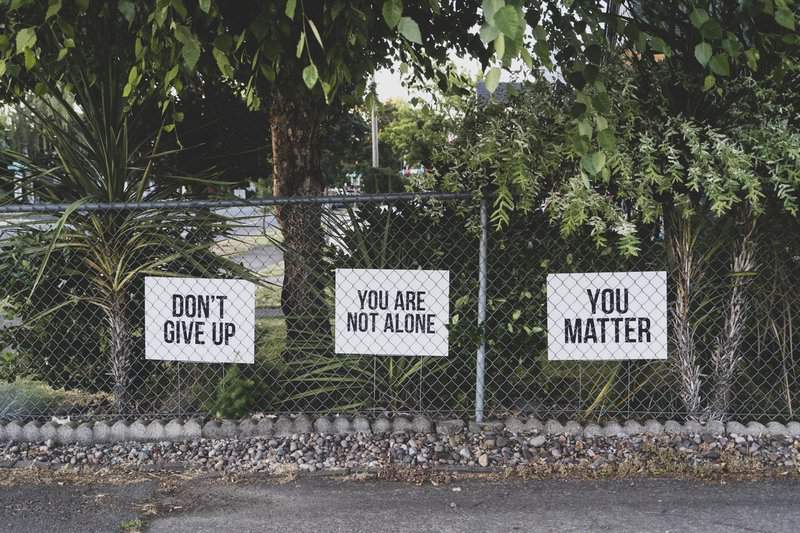Not Only Thrilling Freud Was Alone: what are complexes psychology and where do they come from. Have you ever had cases when you did not wear clothes that you like because you were afraid of ridicule? This is one of many situations when complexes have ruled your life. It should be said that there are several options for understanding the word “complex”: ordinary, “profane”, and scientific. We will talk about the nuances of concepts and strategies to combat complexes. After all, in order to defeat your enemy, you need to know him in person 🙂
The complex – what is it and how to live with it
First of all, let’s say: living with complexes is not necessary. They need to be driven out of your life, but away! Only then will you learn to truly enjoy life and enjoy every day. First, let’s find out what a complex is.

The concept of the complex: from science to everyday life
For the first time, the word “complex” in a scientific context appears thanks to Karl Gustav Jung – a colleague, a student of us all well-known Sigmund Freud. Jung called this term psychic phenomena that are not controlled by consciousness. This is the scientific concept of the complex. But for different researchers, the “complex” has different contents. We turn to the most general definition of a complex.
In the meantime, it’s worth clarifying for yourself what the ordinary understanding of complexes consists of. In everyday life, by complexes is meant something bad, something that prevents us from going to success. The complex makes a person weak. No need, of course, to look at the complexes only in black. Sometimes they are also useful. For example, complexes associated with behavior often force us to be more polite and tolerant. In addition, complexes – if overcome, make a person stronger, more confident and more motivated.

Complex as a concept of psychoanalysis
Most often, complexes are certain sets of facts that affect our behavior. Complexes prevent people from living – this is a truth with which it is useless to argue. They are the most common reason for visiting a psychoanalyst. However, in order to defeat his “notoriety”, you do not need to go to the doctor at all. To begin with, we will understand what types of complexes are.
“Usually, all complexes start from childhood: the careless word of the parents, even a joke, the bullying of classmates and criticism from teachers. Often, even at a conscious age, a person can suffer from complexes laid down in childhood, but don’t even remember about it – everything remains at the subconscious level ”
Artyom Pashkin (psychologist)

Classification of complexes
Of course, the division of complexes into species is a very conditional thing, but still it will help us put the theory into shelves. So, the researchers distinguish:
- Physical complexes, that is, sets of facts related to the appearance (voice, weight, height, shape, size, etc.). The reason for the emergence of such complexes is social pressure, family upbringing, humiliation in childhood, as well as social and cultural stereotypes.
- Age complexes. Have you noticed that you are upset when you find yourself a new wrinkle or gray hair? Do you want to get rid of the signs of maturity? And why? All because of the complexes. Of course, there is nothing wrong with maturity, just as there is nothing terrible in gray hair. Recall at least Keanu Reeves’s new girlfriend. Is she shy of her gray hair? On the contrary, it adorns her. Reason to think, right? 😉
- Psychological complexes. Their root is in the psychological and mental characteristics of a person. In other words, your personality, your difference from others sometimes makes you feel awkward. A constant feeling of guilt, a desire to be a hero, a desire to feel one’s own importance and need, an excellent student’s complex, a passion for power are all manifestations of psychological complexes. Where do the legs of the negative side of such complexes grow from? The answer is to blame everything for self-dislike and dependence on other people’s opinions.
- Social complexes, in turn, are associated with the social role of man, the place that we occupy in society. Social privileges, power, status, education, prestige – all this causes us in such feelings as envy, the desire to get more. In the event that we fail, complexes are born: we feel insignificant. Sometimes a person himself refers to the oppressed, discriminated members of society. Why? Again – dislike of oneself, insecurity, doubts about one’s own significance. Sometimes we call it low self-esteem. Man does not believe in his strength and capabilities. And this greatly limits him.

There is another classification of complexes, where the most common are:
- Inferiority complex (low self-esteem);
- Victim complex (typically female complex);
- Alice’s complex in Wonderland (princesses who are waiting for the prince on a white horse and live in a fantasy world);
- Don Quixote complex (far from romantic life), etc.
Men also have their own complexes, which (most often) belong to the category of physical ones.
READ The sweet relationship between a father and his little girl in heartwarming illustrations by Soosh
Where the legs of the problems grow, or the origin of the complexes
Most of the complexes we acquire in childhood. But there are still so-called congenital complexes that are overcome with age. In the people it is called “outgrow”. Here one can not do without Uncle Freud, because innate complexes are primarily associated with the names of Oedipus and Electra. Let’s say right away: not all people “outgrow” these complexes, therefore sometimes Oedipus and Electra manifest themselves in adult life.

Oedipus and Electra Complex
In psychoanalysis, this concept denotes the sexual attraction of a son to his mother. The son is often jealous of mother to father – and the reason for this lies precisely in the Oedipus complex. This concept was first introduced by Sigmund Freud. As we remember, Oedipus is a hero of ancient Greek mythology, who fell in love with his own mother (though out of ignorance).

If we are talking about the relationship of daughters and fathers, then the analogue of the Oedipus complex here is the Electra complex. This term was already introduced by Carl Gustav Jung, who was inspired by the story of Sophocles, an ancient Greek author. Electra is an image that reveals a daughter’s love for her own father and hatred of her mother.
Most often, complexes grow on the fertile soil of education and the environment that surrounds the child:
- The excellent student complex, for example, occurs when a child is mastered, demanding to study perfectly and do everything right.
- The hero’s complex is formed if the family has a difficult atmosphere, the parents are unreliable (for example, alcoholics), so the child constantly wants to save his parents (literally).
- The inferiority complex, in turn, is associated with constant criticism and punishment of the child.

How to get rid of complexes?
The answer to this question is banal: the only effective way to deal with complexes is to work on yourself. You can analyze yourself yourself or turn to a psychoanalyst. The examples we cited above are the most common and understandable cases. However, there are more complicated situations when a person cannot get out of the network of complexes himself.
The consequence of the complexes is depression, disappointment in oneself and in life, powerlessness, loss of joy and desire to do something. In such an atmosphere you cannot be alone. But, as experience shows, it is in a serious condition that a person is alone. Complexes force us to find within ourselves internal forces in order to gain self-sufficiency and not need others. But this process is similar to an extreme swimming lesson, when a person is thrown in the middle of a reservoir to teach him how to swim. There are two ways out: either a person swims or drowns.

Brief instructions for action
If you see that you have problems with the complexes, then this brief instruction will help you – the first steps that can be taken along this path:
- Decide which complex torments you and prevents you from living. To do this, you need to look at yourself from the outside, conduct a “survey” among your friends and relatives – people who will tell you the truth for sure. After analyzing yourself, you can draw the necessary conclusions.
- Take a close look at your life and answer the question: how does the complex affect you, your behavior, relationships with people? Then think: what would your life be like if you got rid of the complex? Are you satisfied with everything in your life? What would you like to change?
- Answer the question: does the complex benefit you? If it spoils your life, then why do you still tolerate this unwanted “guest”? A good example is the fear of the scene. This is a common complex. But the fear of the scene is not a problem, but only a minor difficulty in life, which is quite possible to overcome. It is only necessary to have a desire for this.
- The last step is the elaboration of the complex. How to defeat the complex? The first option is willpower. Because only you are the master of your destiny and personality. Often, aggression helps in the fight against complexes when you passionately say no to what you don’t like about yourself. The bowl of your patience overflows, and you are forced to make changes. The second option is assistance from the outside, an appeal to a specialist (psychoanalyst).

***
Well, as we see, human is an amazing creature, both fragile and strong. On the one hand, the complexes and what we know about them make us take care of others in order not to harm them. And on the other hand, the complex is pushing us to be more demanding and strict about ourselves. In any case, the path of a person is constant self-improvement.

Featured image on unsplash.com.
Follow us on “Instagram” and “Pinterest”!!!
READ ALSO 6 Reliable Zodiac Signs You Can Trust

